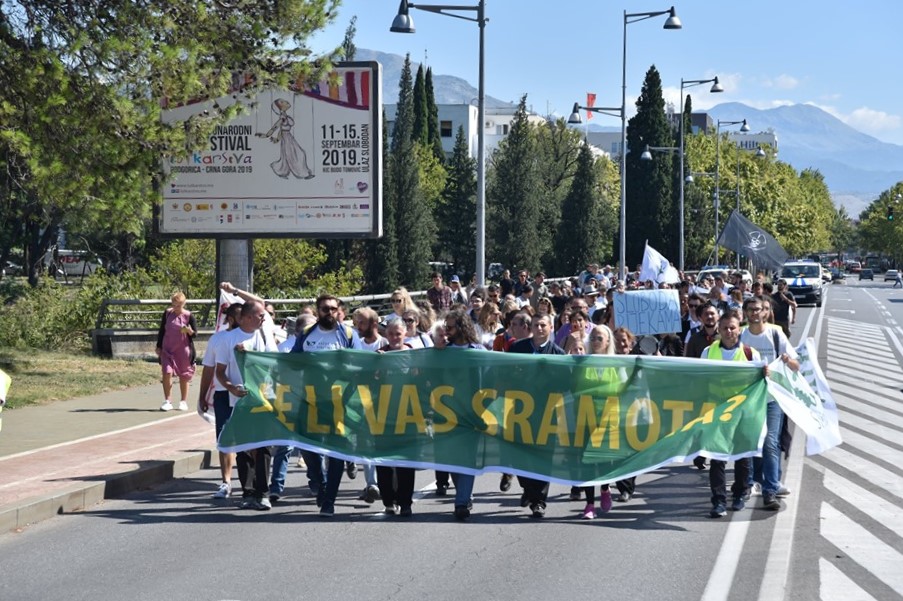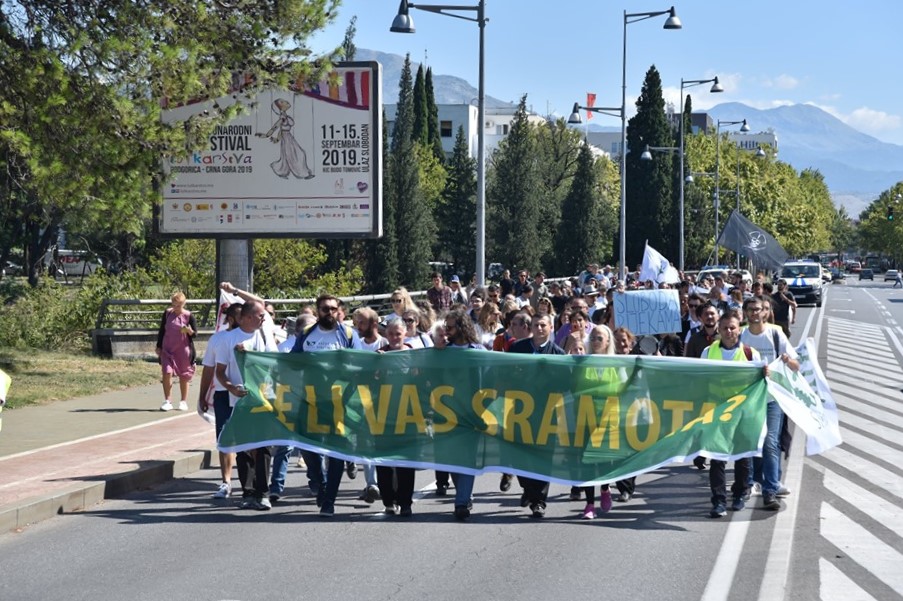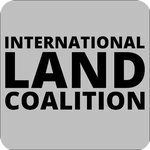Montenegro’s Government flawed decision-making process in the militarization of Sinjajevina
.

The richness in terms of biodiversity and natural beauty in Montenegro are rather unique among European countries, and the Montenegrin State is fully aware of its great value and economic potential. This is made clear in the country’s 2007 Constitution, adopted when Montenegro gained its full sovereignty and independence from the ex-Yugoslavia and Serbia. The language in this defining document describes the new State as an ‘ecological one’ and, through it, “theoretically” guarantees its citizens a healthy environment as a universal right (Article 23: Everyone shall have the right to a sound environment. Everyone, the state in particular, shall be bound to preserve and improve the environment). This supreme legal document, the most important legal instrument in the country, further stipulates that everyone shall have the right to timely receive full information about the status of the environment, to influence the decision-making regarding the issues of importance for the environment, and to the legal protection of these rights.

At the same time, there are numerous ratified international conventions and general legal principles that, pursuant to Montenegro’s Constitution, prevail over its national legislation, such as the UN Aarhus Convention of which Montenegro is a Party. Also, as a candidate country for accession to the EU, Montenegro is obliged not only to transpose but also to implement international and, most particularly, European environmental standards as defined in the Green New Deal for Europe, as well as in the relevant EC directives (EIA Directive 85/337/EEC). Moreover, the Constitution introduces the relevance of natural and cultural heritage and provides for its protection (Article 78: The State shall protect the natural and cultural heritage).
"Montenegro is obliged not only to transpose but also to implement international and, most particularly, European environmental standards"
For all of these reasons, one would expect Montenegro’s policy and decision-making concerning the environment, very conscientious and efficient. However, at this time, Montenegro is not a functional democracy but, rather, a country where decisions are often made far from the public eye, with no transparency or any prior expert analysis. Some preliminary information about the new military camp had been provided prior to its inauguration on the 27th of September 2019, but more symbolically than anything (e.g. Defense Minister’s presentation in Kolasin in May 2018). Indeed, the form, content and reasoning that lay behind the decision to militarize Sinjajevina are still not publicly available, and the decision to turn this traditional pastureland into a military landfill involved no proper consultations with, nor participation of, the directly affected stakeholders (i.e. local pastoral communities, water-bottling companies, producers of gastronomic specialties, and the eco-tourism economy of Sinjajevina). The Montenegrin citizens were informed as a fait accompli, about their Governments' official decision on September 5, 2019, and without a proper debate or participation in the decision, its de facto inauguration came as a surprise to most of the general public, and most dramatically to the local communities concerned. In fact, the Spatial Plan of Montenegro until 2020 identified (and still identifies) Sinjajevina as an area that should become a Regional Nature Park before the end of 2020.
The future of Sinjajevina is crucial not only for Montenegro, but well beyond its borders: it is a site of rich cultural heritage, an area of great biodiversity and a reference for its natural beauty. The decision-making in this important case needs to be measured, thoughtful, and inclusively. Over 22.000 people live in the slopes around these mountain pasturelands, and approximately 250 families have their farms within the Sinjajevina highlands. Pursuant to the Constitution of Montenegro, and the terms of the UN Aarhus Convention (see for example pp. 133-134), previously to any military implantation, the Government must, precisely justify ‘if public participation in the decision-making process, would have a clearly adverse effect on national defense’ in order to omit public participation.
The decision to turn Sinjajevina into a military landfill involved no proper consultations with, nor participation of, the directly affected stakeholders
The Government provided no justification whatsoever to exempt its decision-making process from open and public review when considering whether or not to construct a military camp in Sinjajevina. Without any relevant study on the social and environmental impact of this action, nor any substantial negotiation with the directly affected populations, and with no public record of the “national defense exemption test” cited here above, the Government’s decision to inaugurate a military camp in the heart of these inhabited and ecologically valuable pasturelands, as it has unfolded over the past two years, is clearly arbitrary, grievously flawed, and stands in violation of the Montenegrin Constitution and International Environmental Law, as well as of the UN Aarhus Convention of which Montenegro is a Party.
Files section
- Article has no files.







